
-
 Scandic Trust Group strengthens sales network with First Idea Consultant
Scandic Trust Group strengthens sales network with First Idea Consultant
-
Stocks slip as investors weigh earnings, tariffs
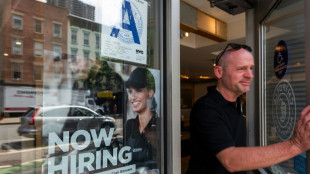
-
 Police say 19 held after raid at Swedish start-up Stegra to be deported
Police say 19 held after raid at Swedish start-up Stegra to be deported
-
Kante returns as France seek to clinch World Cup berth

-
 Marcus Smith starts at full-back as England ring changes for Fiji
Marcus Smith starts at full-back as England ring changes for Fiji
-
Kolisi 100th Test 'no distraction' for Erasmus' South Africa

-
 Teetering Belgian government given more time to agree budget
Teetering Belgian government given more time to agree budget
-
Merz backs EU plan to protect steel sector from Chinese imports
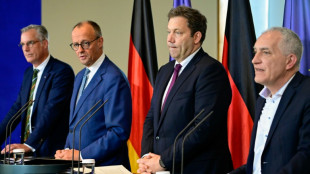
-
 New Zealand make Scotland changes after Barrett brothers' injuries
New Zealand make Scotland changes after Barrett brothers' injuries
-
'Roy of the Rovers story' -- Farrell handed Ireland debut for Japan Test

-
 Stones backs Man City team-mate Foden to pose England dilemma for Tuchel
Stones backs Man City team-mate Foden to pose England dilemma for Tuchel
-
Djokovic to face Alcaraz in ATP Finals groups

-
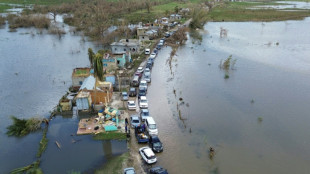 Facing climate 'overshoot', world heads into risky territory
Facing climate 'overshoot', world heads into risky territory
-
Springbok skipper Kolisi to play 100th Test against France

-
 Bank of England leaves rate unchanged before UK budget
Bank of England leaves rate unchanged before UK budget
-
Germany recall Sane, hand El Mala debut for World Cup qualifers

-
 India thump Australia to take 2-1 lead in T20 series
India thump Australia to take 2-1 lead in T20 series
-
Cameroon's Biya, world's oldest president, sworn in for 8th term

-
 Flick holding firm on Barca high line despite defensive woes
Flick holding firm on Barca high line despite defensive woes
-
Battered US businesses eye improved China trade at Shanghai expo

-
 France opt for Le Garrec as Dupont replacement for 'best team ever' South Africa
France opt for Le Garrec as Dupont replacement for 'best team ever' South Africa
-
Drugmaker AstraZeneca profit jumps as US business grows
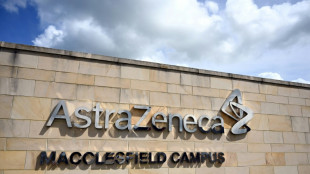
-
 'Vibe coding' named word of the year by Collins dictionary
'Vibe coding' named word of the year by Collins dictionary
-
Vietnam evacuates thousands from coast ahead of Typhoon Kalmaegi
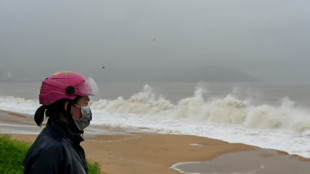
-
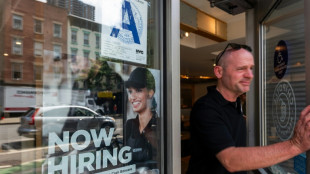 European stocks fall after gains in Asia, US
European stocks fall after gains in Asia, US
-
MotoGP legend Agostini admires Marc Marquez's 'desire to win'

-
 Nepal searches for avalanche victims
Nepal searches for avalanche victims
-
Hezbollah rejects any negotiations between Lebanon and Israel

-
 Chapman blitz leads Black Caps to tight T20 victory over West Indies
Chapman blitz leads Black Caps to tight T20 victory over West Indies
-
France urges EU to sanction Shein platform

-
 France opt for Le Garrec as Dupont replacement for South Africa Test
France opt for Le Garrec as Dupont replacement for South Africa Test
-
Turmoil in tiaras at Miss Universe pageant in Thailand

-
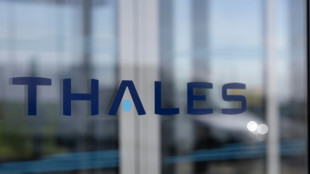 Probe into Thales defence group looking at Indonesian contract
Probe into Thales defence group looking at Indonesian contract
-
US to cancel flights as longest govt shutdown drags on

-
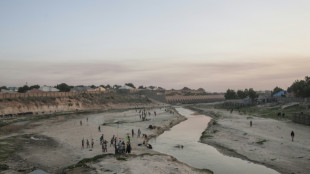 Home in Nigeria, ex-refugees find themselves in a war zone
Home in Nigeria, ex-refugees find themselves in a war zone
-
Doncic's Lakers hold off Wembanyama's Spurs, Blazers silence Thunder

-
 For Turkey's LGBTQ community, draft law sparks existential alarm
For Turkey's LGBTQ community, draft law sparks existential alarm
-
Musk's $1 trillion pay package to face Tesla shareholder vote

-
 Tonga rugby league star out of intensive care after seizure
Tonga rugby league star out of intensive care after seizure
-
Argentine ex-president Kirchner goes on trial in new corruption case

-
 Dams, housing, pensions: Franco disinformation flourishes online
Dams, housing, pensions: Franco disinformation flourishes online
-
Endo returns as Japan look to build on Brazil win

-
 Franco captivates young Spaniards 50 years after death
Franco captivates young Spaniards 50 years after death
-
German steel industry girds for uncertain future

-
 IPL champions Bengaluru could be sold for 'as much as $2 billion'
IPL champions Bengaluru could be sold for 'as much as $2 billion'
-
Budget impasse threatens Belgium's ruling coalition

-
 New Zealand ex-top cop admits to having material showing child abuse, bestiality
New Zealand ex-top cop admits to having material showing child abuse, bestiality
-
BoE set for finely balanced pre-budget rate call
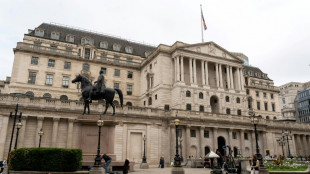
-
 Australian kingpin obtains shorter sentence over drug charge
Australian kingpin obtains shorter sentence over drug charge
-
Weatherald's unenviable Ashes task: fill giant hole at top left by Warner


Sydney's former HIV epicentre close to ending transmission
The inner-city area of Sydney, once the epicentre of Australia's HIV epidemic, is very close to becoming the first place in the world to reach the UN's target for ending transmission of the virus, researchers said on Monday.
UNAIDS has set a goal of ending AIDS as a global health threat by 2030, which includes reducing the number of new HIV cases by 90 percent compared to 2010.
In inner Sydney, new infections among gay men dropped by 88 percent from 2010 to 2022, researchers announced at the International AIDS Society's HIV science conference being held in the Australian city of Brisbane.
Andrew Grulich, an epidemiologist at the University of New South Wales who presented the research, told AFP that "we're very nearly there" some eight years ahead of the 2030 target.
Just 11 new HIV cases were recorded in inner Sydney last year, "an extraordinarily small number of infections for what was the heart of the Australian HIV epidemic," Grulich said.
Gay men make up an estimated 20 percent of the male population in inner Sydney, and they represent the large majority of the city's HIV cases.
Grulich said that several areas in the UK and Western Europe have also seen rapid drops in new HIV cases.
But "I don't think anywhere has gotten close to 90 percent," he added.
However Grulich emphasised that this does not mean that HIV is close to being eliminated in the city of more than 5.2 million people.
"HIV can only be eliminated if we have a vaccine and a cure," he said.
And the fall in new HIV cases was far less precipitous in other parts of Sydney.
In the city's outer suburbs, new cases have only fallen by 31 percent since 2010, the researchers found.
This disparity was due to a much higher rate of HIV testing and use of pre-exposure prophylaxis (PrEP) -- which reduces the risk of transmitting HIV during sex -- in the inner city, Grulich said.
He said another cause for progress was that around 95 percent of HIV-positive people in Australia are now on antiretroviral treatment, which suppresses the level of the virus in the blood.
Another study announced at the AIDS conference, which was published in The Lancet journal, said that people on antiretrovirals who have low but detectable levels of HIV have almost zero risk of sexually transmitting the virus to others.
- 'Beyond exciting' -
Sharon Lewin, the president of the International AIDS Society, said the progress in inner Sydney was "beyond exciting".
"It affirms that Australia is poised to be one of the first countries, if not the first, to achieve virtual elimination of HIV," she said in a statement.
Heather Ellis, a woman living with HIV in the southern state of Victoria, said that "the last mile" of eliminating HIV in Australia will require measures specifically designed to reach women.
While gay men are now well aware of prevention tools like PrEP, "the heterosexual community is pretty much oblivious," said Ellis, a communications coordinator for the NGO Positive Women Victoria.
The Sydney research, which has not been peer-reviewed, was based on data from the New South Wales health department as well as annual surveys taken by gay men.
Grulich said the progress in inner Sydney was particularly significant because "this was a community that was completely devastated in the 80s and 90s -- a few thousand men died in these areas".
J.Fankhauser--BTB




